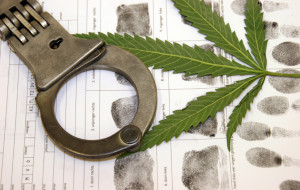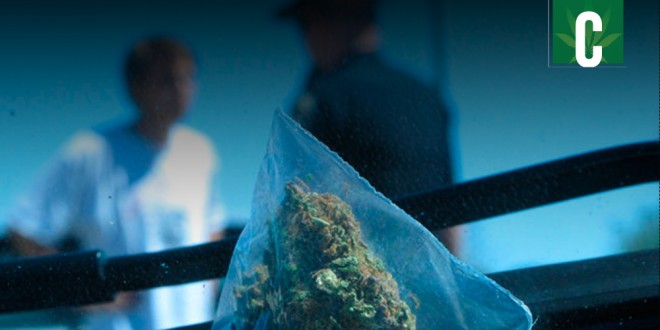Back in 2009, California reached the height of its long, misguided campaign against marijuana. That year, more than 7,400 people were arrested on misdemeanor possession charges in Orange County alone.
 Lawmakers responded the next year, passing a law that effectively decriminalized the drug for simple possession. And now statistics released by the state suggest that move has worked, cutting misdemeanor arrests by a massive 93 percent between 2009 and 2014. Just 548 people were arrested on misdemeanor marijuana charges that year.
Lawmakers responded the next year, passing a law that effectively decriminalized the drug for simple possession. And now statistics released by the state suggest that move has worked, cutting misdemeanor arrests by a massive 93 percent between 2009 and 2014. Just 548 people were arrested on misdemeanor marijuana charges that year.
Cannabis has long been decriminalized in the Golden State. California voters defeated a decriminalization initiative in 1972, but lawmakers decriminalized in 1975 anyway. Even so, the charge remained a misdemeanor, albeit a misdemeanor that carried a top fine of $100 (nearly $500 when court costs and fees are included). This meant a potential criminal record and a more expensive interaction with the courts.
Marijuana possession charges have been reduced to civil citations
Arrest was also possible until the 2010 law. It removed the threat of jail time and replaced the misdemeanor charge with a civil citation, similar to a speeding ticket. That reduces the cost and complexity for offenders.
“Marijuana possession has fallen from a felony to a misdemeanor to an infraction,” said Orange County Sheriff Sandra Hutchens. “It’s essentially decriminalized already in California.”
The drug is incredibly easy to get. The state’s infamously chaotic medical marijuana system has supplied countless recreational users, while black market pot is also readily available. Dealing remains a felony, but stoners caught with less than an ounce of cannabis face only the $100 fine.
Misdemeanors have dropped substantially
 The new data shows that misdemeanor arrests dropped to almost zero, while felony arrests also declined. Those were not down as much – in Orange County, for example, felony arrests declined 13 percent between 2008 and 2014. Statewide the numbers fell 22 percent in those five years, to about 13,000.
The new data shows that misdemeanor arrests dropped to almost zero, while felony arrests also declined. Those were not down as much – in Orange County, for example, felony arrests declined 13 percent between 2008 and 2014. Statewide the numbers fell 22 percent in those five years, to about 13,000.
Reform advocates, naturally, noted the numbers as proof decriminalization works. Legalization would take the state even further toward criminal justice reform, they said. But not everyone was pleased.
Legalization opponents, especially those in law enforcement, said decriminalization could be driving more teen use and more drivers to hit the road stoned. Numerous studies have rejected these conclusions, to little effect.
“My concern is with the use by young people,” Hutchens said. “The brain is developing until age 26. Marijuana is addictive, and it does have an impact on the brain – that’s a medical fact. If we legalize a drug, we’re saying it’s OK. What kind of a message does that send? We don’t need one other thing to dumb our kids down or demotivate them.”
Marijuana does not cause cognitive problems
Actually, the science is conclusive: Marijuana does not lower adolescent IQs or otherwise cause permanent cognitive problems. This is simply a canard of the anti-legalization crowd.
But legalization advocates pointed out that marijuana reform has won the backing of experts and plans for legalization would explicitly protect children.
“We share the Sheriff’s commitment to protecting California’s kids, which is why our ballot measure adopts the recommendations of public safety experts and includes some of the strictest child protections in America,” said Jason Kinney, spokesman for Californians to Control, Regulate and Tax Adult Use of Marijuana. “The evidence and experience from other states clearly shows that the best way to limit youth access to marijuana is to strictly control and regulate it like alcohol… and to make substantial investments in youth prevention, education and treatment program, which our measure does,” Kinney said. “In fact, studies show that states which loosen marijuana prohibitions find a measurable decrease of usage among teens. The current system doesn’t protect kids – our ballot measure will.”
 California Marijuana Market Breaking "Marijuana News" from CA
California Marijuana Market Breaking "Marijuana News" from CA





